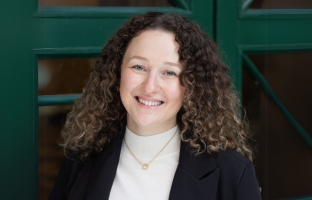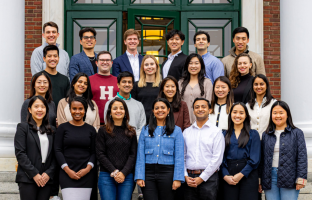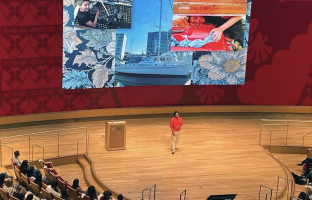Sometimes inspiration does come from the likeliest places. For Rahil Mehrotra, MBA 2018, it emerged from a combination of HBS courses and experiences: The Entrepreneurial Manager (TEM) course, the winter break Startup Boot Camp program, and most importantly, the Field Global Immersion (FGI) through which Rahil met his internship employer.
“My internship search wasn’t really constructed on a traditional path with research, interviews and offers,” says Rahil. Instead, his TEM class provoked a change in direction. “I had never worked in a startup before,” he says. “But I got the startup bug and wanted to use the summer to test my interest.”
Working with Kurt Piemonte, a Corporate Relations Director in Career and Professional Development at HBS, Rahil began sorting his way through the startup opportunities posted on Career Hub. To supplement his search, Rahil directly emailed startup protagonists in cases he admired. To his surprise, “They were all very responsive – most of them wrote back in twenty-four hours.”
By the spring, he knew he wanted to eliminate high-tech ventures from his list and focus on B2C consumer-facing startups. Then Rahil got his big break: through the Field Global Immersion (FGI) program where students work with global partners on a project, he was assigned to his first choice of assignments, Bocadio, a food venture in Peru. “I had never imagined that I’d end up working in South America at any point in my life,” he says. “But FGI presented this golden opportunity – and I was very excited that it did.”
Rahil’s Immersion morphed into an offer to return for the summer. Bocadio, a gourmet food delivery startup modeled on Munchery in the U.S., “offered me exactly what I was looking for: a consumer-facing startup with a role in marketing. It’s an opportunity for me to apply and see in real life some of what we learned in the Field and FGI courses – the challenges of working in unfamiliar environments.”
Rahil’s internship, which runs nine weeks beginning June 19, gives him responsibilities in both operations and marketing. For the former, he’s looking at ways to reduce the cost per dish, in the kitchen or within the delivery logistics. The larger role, and the one with more urgency, requires aggressive customer acquisition. “After one-and-a-half years, Bacadio is serving 180 dishes a day; they need to reach 220 to break even,” Rahil says. “We need to get new customers and/or get more orders from our current customers. I have to come up with a marketing plan, then implement the ideas that the team finds agreeable.”
So far, Rahil has pursued options such as a referral program, a subscription model, and a corporate partnership plan. But the ideas that hold his greatest interest involve digital marketing, and he has turned to his HBS base for support. “I emailed one of my professors, Mark Roberge, who gave me suggestions for getting started with digital marketing and relevant performance metrics.”
“I really like the flexibility of this start-up, that my role is not narrowly focused,” says Rahil. “I can get important skills, but also gain the big picture perspective of a founder.”
He has a number of suggestions for other internship searchers, particularly those interested in startups. “This is the perfect time to try something new,” he observes. But there may be the practical issue of money. “Although startups don’t often offer as competitive a salary as established companies,” Rahil notes, “HBS has a Summer Fellows Program that provides funding to students founding companies or working at startups. This is, I think, an extremely generous and good program that must continue, as it encourages students to take risks, and promotes entrepreneurship.”






.png&w=80&h=80)
